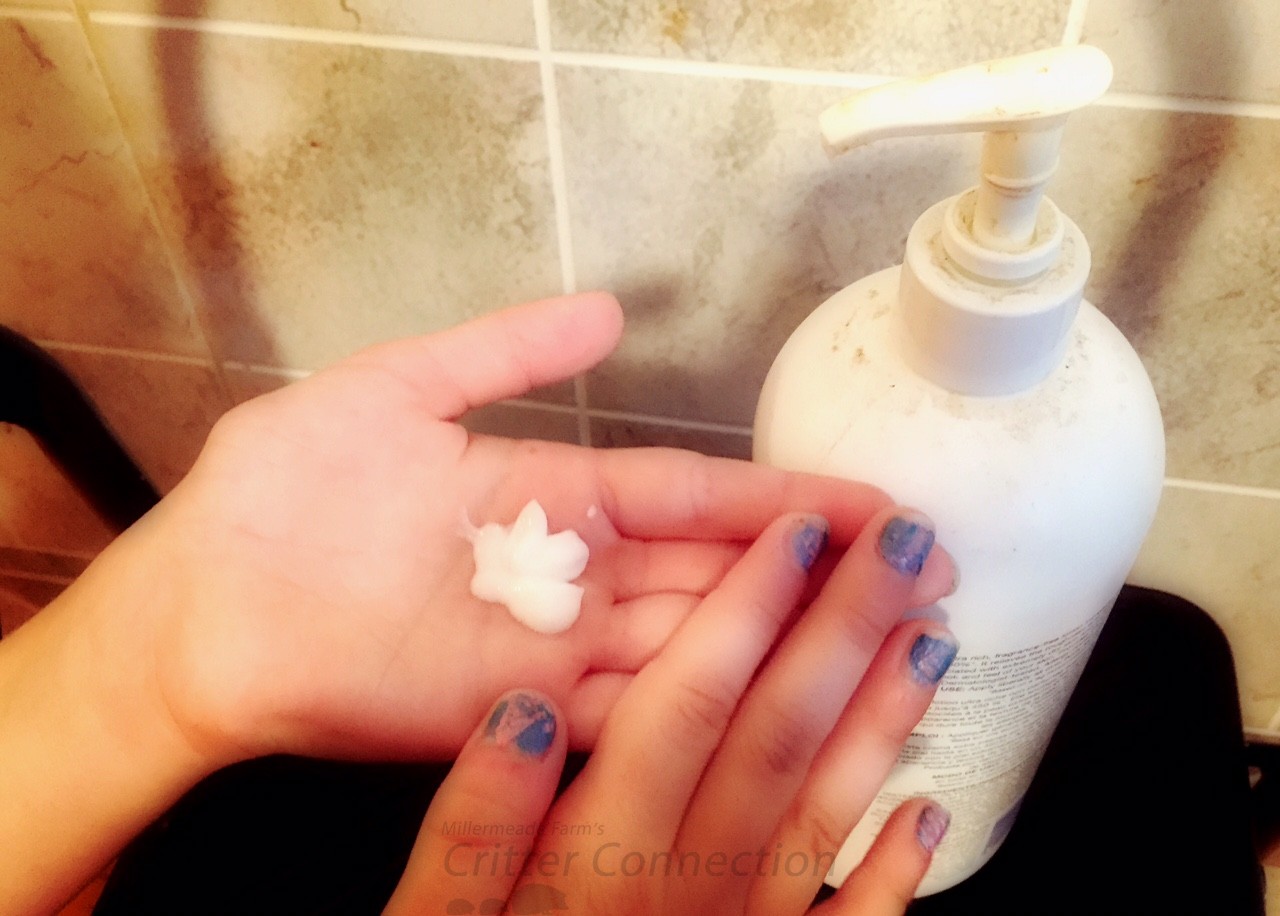Last Updated on August 27, 2022.
Scent & Taste
- Hedgehogs are very scent oriented and use their sense of smell to search out food.
- Sometimes you might smell good enough to eat! If you smell good, and taste good through licking… watch out!
- Sometimes hedgehogs will lick salt from sweaty hands and become tempted to bite, because they like the salty taste.
- When a hedgehog bites due to taste and smell it is exhibiting normal, but unacceptable behavior.
- This is the most common reason for biting and the easiest to avoid.
- Fortunately, this is one of the easiest behaviors to manage. Simply move your fingers or hands when your hedgehog starts to lick!
- Washing hands after eating will help reduce the risk of food smell but some soap or hand sanitizer scents smell good to hedgehogs and are just as tempting to hedgehogs as actual food smells.
- If your hands are clean and your hedgehog is fascinated with licking you, it is helpful to only let your hedgehog lick the palm of your hand rather than your fingers.
- Keep in mind that food odors may linger for several hours after eating. Our friend Coley Emde shared “One of mine, suddenly and periodically, would attempt to nibble me and I quickly determined it was because garlic odor was lingering on my fingertips and she did not like it. So I wash my hands with ketchup after using garlic and then with Dawn dish soap and voila, no more nibbling!”
- According to Becca Loane in an article on Hedgehog World, “Another very frequent problem causing scent is tobacco smoke. It is very common for breeders to get contacted by people wanting to get rid of their hedgehogs because they frequently and painfully bite, with the hedgehog stopping their biting immediately when being in an environment without smoking, and handled by people who do not have the scent of smoke on their skin.” http://www.hedgehogworld.com/content.php?156-Is-
Fascination & Exploration
- Young hedgehogs may nibble, tug on, carry around or simply bite because it is a way of exploring their environment and getting a “feel” for new smells and tastes.
- Human babies also go through an “oral phase” where they put things in their mouths to learn about their environment.
- Human and animal babies alike need to learn what are appropriate and inappropriate objects to put in their mouths.
- Some hedgehogs are particularly fascinated with things you might be wearing.
- Artificial fingernails
- Nail polish
- Watches
- Bracelets
- Rings
- Earrings (ouch!)
- Belly button rings (double ouch!)
- Hedgehogs should be allowed to investigate and explore their environment through tasting, smelling and chewing unless there is a potential they could hurt themselves or others (including you).
- Trying to stop the biting, chewing, and tasting from “safe” items could inhibit the bonding process.
Oral Fixation
- Some hedgehogs simply have an oral fixation and like to have an object in its mouth.
- Even though this is rather uncommon, it is not a harmful or dangerous behavior.
- Simply provide small pieces of fabric, small soft toy, or other hedgehog-safe item for the hedgehog to carry in its mouth.
- Some hedgehogs may outgrow this behavior while other hedgehogs enjoy chewing or biting objects in their environment their entire life.
Communication
- Being attentive to your hedgehog’s needs and how they act prior to biting can help prevent biting as a form of communication.
- Hedgehogs use biting as a form of communication since they have limited vocalization skills.
- Your hedgehog could bite or nip if you are doing something that is making it uncomfortable such as being too close to its face or are trying to restrain it.
- Some hedgehogs may bite to express their irritation with you because you woke them up too early or tried trimming their nails.
- One of our customers said one of her hedgehogs would bite out of jealousy – if she didn’t hold that particular hedgehog first before any other hedgehog, it would bite. Other hedgehogs only bite certain people or if their owners have been gone for a period of time. This type of biting is hedgehog frustration or pouting.
- Other hedgehogs have simply learned to bite to get their way. It is possible to teach hedgehogs to stop biting with time and persistence.
- Hedgehogs may simply have not been taught that biting is no fun for their owners.
Pain & Stress
- Adapting to a new home and/or food and bedding changes may cause your hedgehog to bite.
- The hedgehog can become upset with the change, and biting is their only way to express their frustration.
- Some hedgehogs don’t like crowds or noisy environments.
- Some hedgehogs are easily startled with sudden noises.
- Biting may start when they are quilling as a means to express their discomfort.
- Hedgehogs that normally don’t bite are even more inclined to have a stress or pain that they are trying to communicate.
- Illness or pain, or uncomfortable environments are things to check for right away.
- Some female hedgehogs will bite as a way to protect their litter and once the stress of raising babies is over, they will return to their original personality.
- Some hedgehogs prefer warm temperatures. They are in a significantly better mood if they are warmer and more comfortable.
Over Handling
- In the case of over handling it is important for you to pay close attention to the hedgehog’s needs.
- Justine at Huckstar Hedgies recommends keeping handling consistent, but timed because the hedgehog also needs to trust that he will be put back in his environment.
- Gradually increasing time being handled may be the best option in this case. Our friend Coley Emde suggests this: “Take your hedgehog out beginning with even multiple 15-minute increments throughout the day because then they get used to being picked up. It is okay to do this during the day even if they just want to snuggle. You can slowly increase the amount of time you have them out as they become more comfortable with you. We take our babies and adults out numerous times day and night. The more positive experiences you build together, the more trust they build with you.”
- Some hedgehogs will bite when they have been out for an extremely long amount of time.
- Usually these hedgehogs will squirm and attempt to get away before they bite.
- Hedgehogs that are active in your hands and are running on the “human treadmill” of your hands are simply frustrated because they aren’t getting down to explore or because they need more freedom of movement.
Pouting and or Rebuilding a Bond
- Hedgehogs can show their displeasure by pouting and biting.
- Hedgehogs may pout when they
- Don’t get what they want such as six mealworms and not two
- A routine is broken
- Owners have been away
- This type of biting isn’t out of meanness or aggression, but rather their frustration for not getting their way.
- The best response is to simply reestablish the routine and spend extra cuddle time with your hedgehog.
Nesting
- Miss LK said that her hedgehogs Mocha and Koda would sometimes-accidentally bite when they were trying to rearrange her shirt to make a nest when no blankets were available.
- One of our customers told us that their hedgehog had a habit of biting until it was given a small piece of fleece to carry around, as a blanket, the hedgehog was content as could be and didn’t bite at all!
- After bath time some hedgehogs will also bite the inside of their drying cloth while rooting as they are attempting to build a little nest area to take a nap.
Territorial
- Aggressive biting is often an attempt to establish a territory.
- Their cage, food dish and sleeping bags might become your hedgehog’s own space.
- Once these hedgehogs are out of their personal space they may be perfectly fine.
Hormone Driven
- Some males are hormonally stressed if they are in the presence of a female and vice versa.
- It is possible that the male or female will bite only when the other gender is held first.
- Unless you are planning on breeding it may be wise to have your male neutered.
Unexplained Biting
- On rare occasions hedgehogs exhibit unexplained biting or nipping.
- Even though the problem is unusual and certainly frustrating, biting problems can happen even with the best breeding practices, care, and handling.
- With patience and persistence most biting problems can be solved, but be sure to contact your breeder if you are having problems. A video of you handling your hedgehog would be most beneficial.
- Most breeders will welcome a video of you handling your hedgehog. An experienced hedgehog owner may be able to watch the video and pinpoint the problem and provide advice.
Contributor: Gail Smith, Melissa Ramos, Coley Emde






